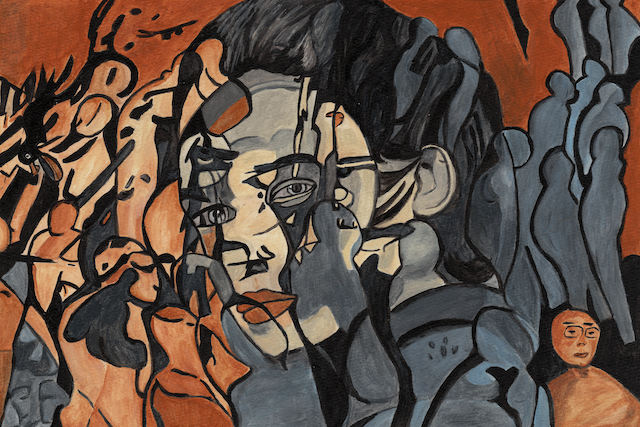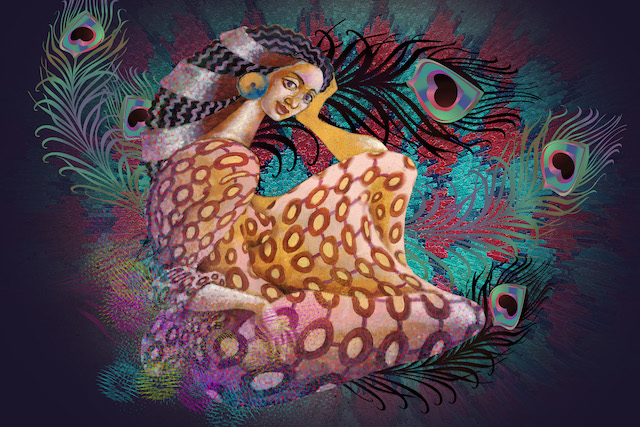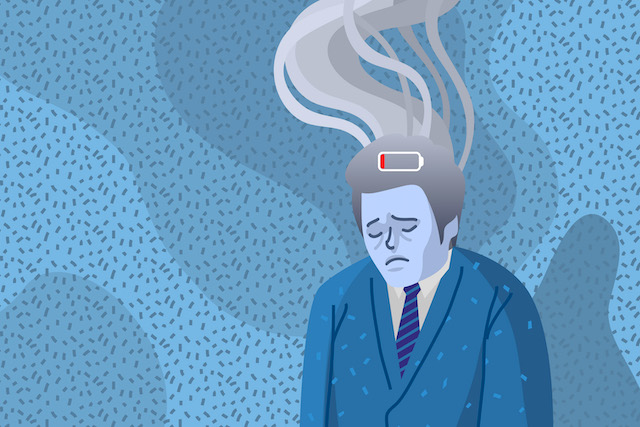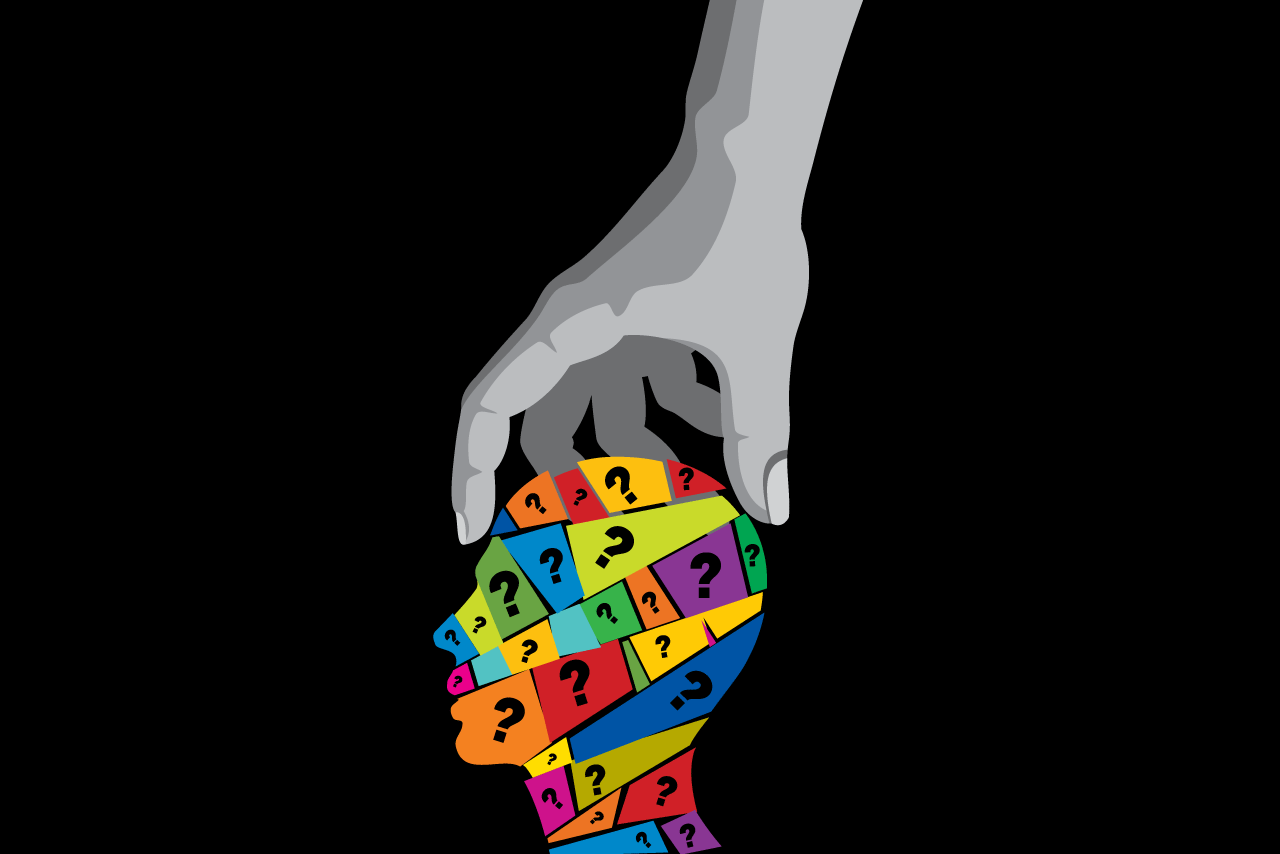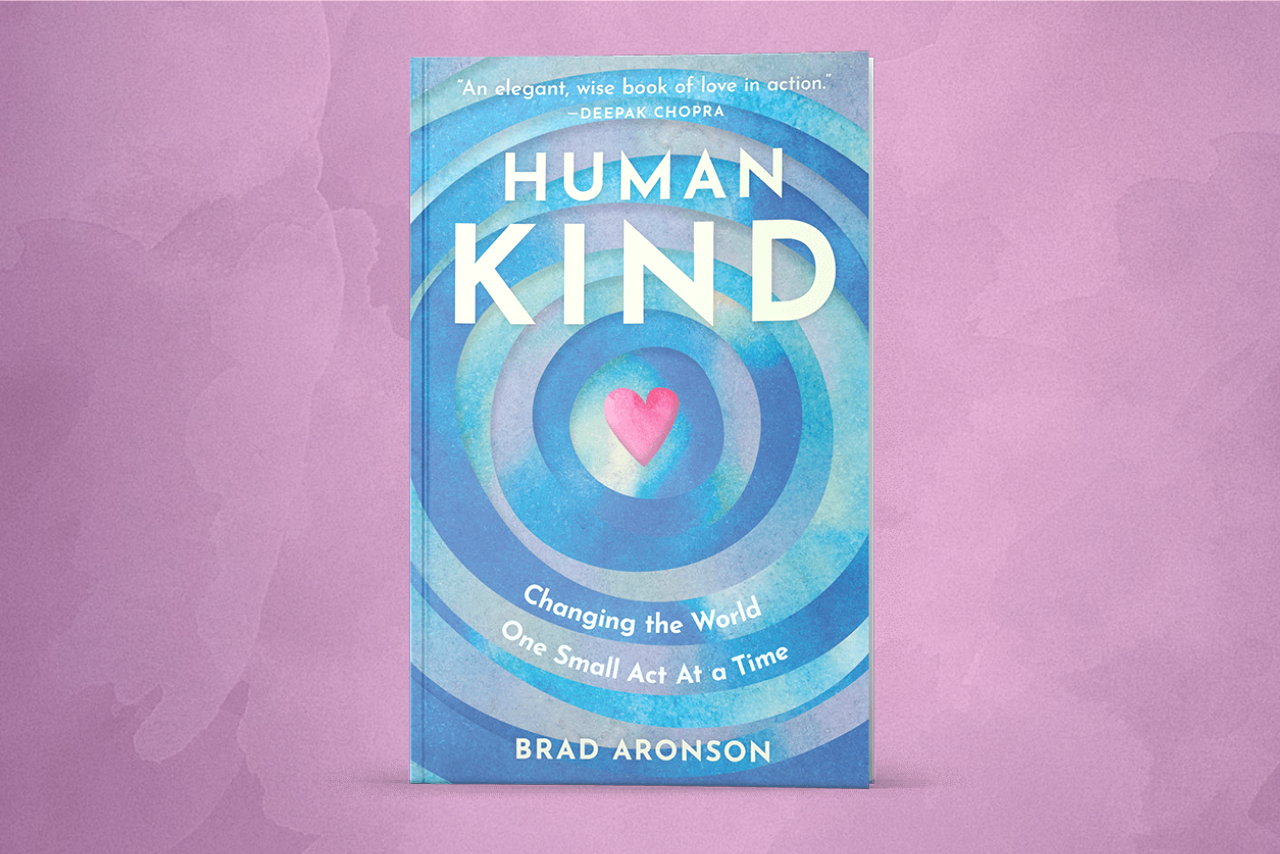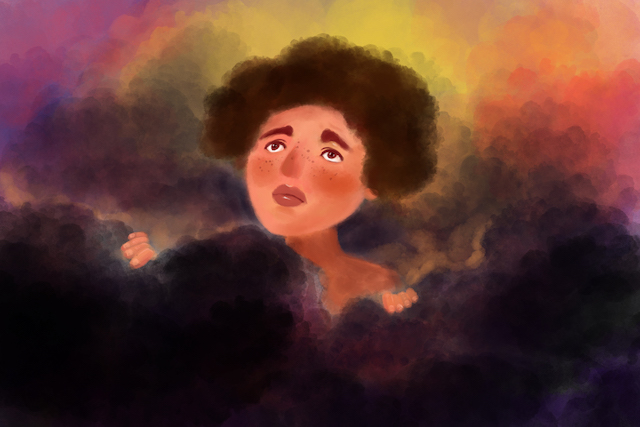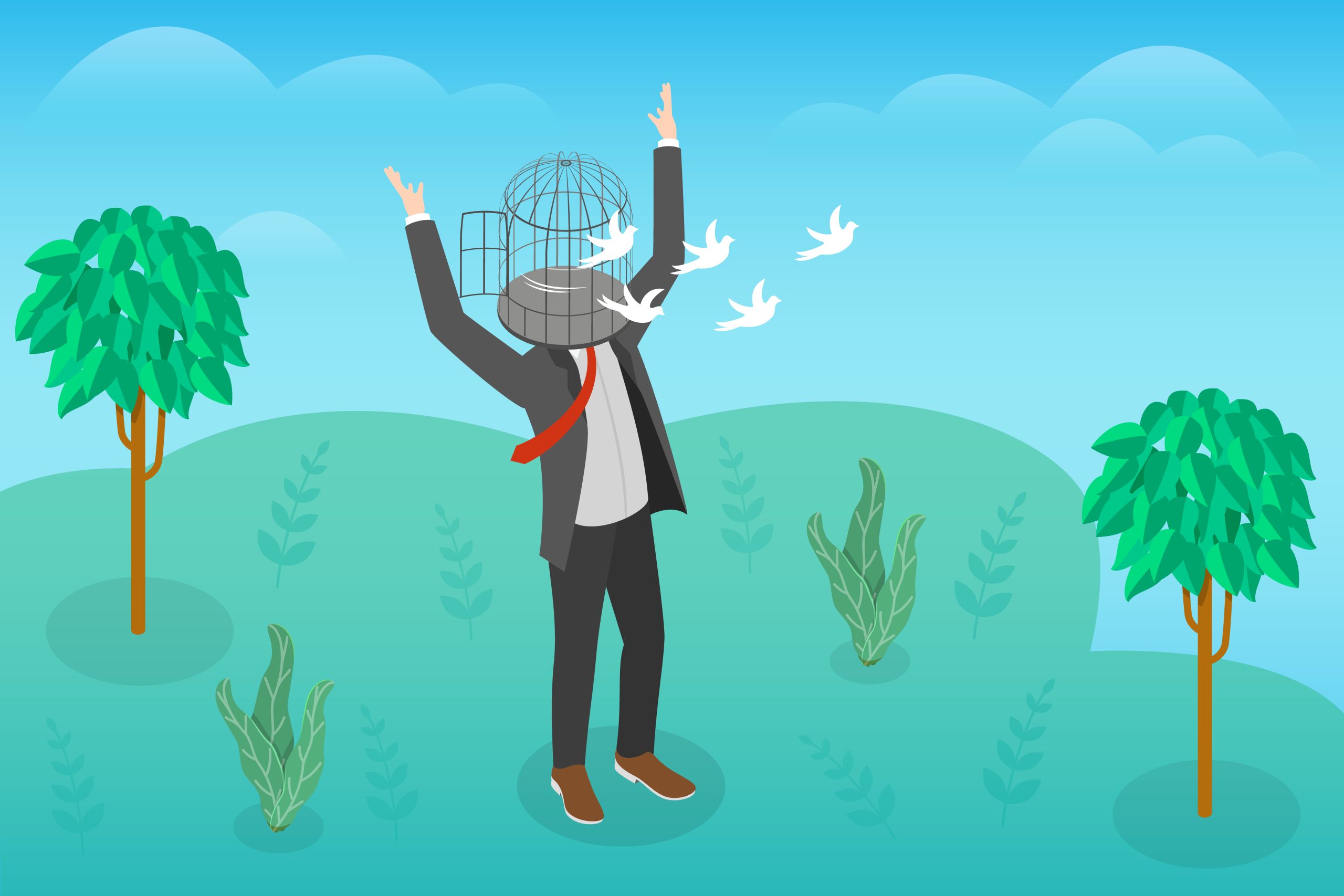
“You have power over your mind—not outside events. Realize this, and you will find strength.” ~Marcus Aurelius
Every time I get back up from my lowest point, it seems as if negative thoughts will drag me down all over again.
Whether it’s the fear of actually being happy only to be sad once again or the self-doubt and self-judgment that pop up when things are going well and I’m healthy, negative thoughts seem to win every single time.
A while ago, I spent a few weeks battling constant negative thoughts about not being good enough, no matter how much I tried to maintain a balance between my passion for writing, my mental and physical health, school, work, meal prepping, house chores, and family.
This only aggravated my anxiety while intensifying my day-to-day misery.
Toward the end of that battle, I experienced a decline in my physical health, as I lacked movement, overslept, and didn’t eat much.
I decided to try to exercise at home. Yet again, during a set of lunges, I experienced negative thoughts about how it didn’t matter if I exercised because I’d only end up spiraling back into the same rabbit hole I just came out of, and I felt a crippling need to drop down on my knees and have a breakdown.
A few seconds before I was about to drop down, the statement “your inner strength is more powerful than your thoughts” came to me.
I paused for a moment, put my hand on the dining table right next to me for support, and took a deep breath.
I felt that statement.
I repeated it to myself a few times. I wrote it down.
I read it over and over again.
I realized that statement had arisen from an awareness behind my thoughts, an awareness that awakened and revived my inner strength.
Often, we become so deeply lost in what’s passed or what’s to come, and that which we can’t control, that we’re no longer conscious or aware of the present moment. Ultimately, we become prisoners of negative thoughts, which worsens our stress and anxiety.
Even if for a moment all is good, and we’re conscious of the present, it isn’t long before we spiral into negative thoughts that provoke doubts and fears about the good that is.
A few months ago, my nieces were so excited to have learned new math problems. They were playing a game amongst themselves, asking each other to solve math equations. Suddenly, they said, “Massi,” which means “aunt” in Punjabi, “what do you think is the answer!?”
I turned red. My ears and cheeks were burning up. I felt embarrassed and scared. I stuttered and quickly changed the topic.
I struggled in math courses throughout high school, barely passing each one. To avoid taking math courses in community college and university, I found a loophole to bypass it as a liberal arts major, only to get a degree to work in a field I’d end up despising.
Now, years later, I’m enrolled in a required math class to pursue a degree in botany. Why? Because I didn’t want my negative thoughts, which ignited fears about not being able to comprehend or pass a math class, to prevent me from learning something I enjoy, plant science.
It’s important to realize that negative thoughts aren’t always true. They’re often a made-up story formed by doubts, fears, and anxieties. They pull us away from reality and detract from our ability to be and do what we desire.
Negative thoughts are the obstacle that arises shortly after life brings something unknown onto our path. They stem from our egoic-state, which tries to protect to us from being uncomfortable with change or something new. Negative thoughts also limit the opportunities and possibilities that life presents us with and ultimately numbs our ability to learn and grow.
But the universe will continue to present us with whatever we need to challenge our negative thoughts and eventually awaken our awareness and ignite our inner strength.
Through many painfully tough times—and I mean painful to the point where I’d find myself drowning in negative thoughts in a dark closet for hours—I’ve found that there is always a powerful awareness behind my negative thoughts. Sometimes, it’s loud and clear, and other times, subtle and unclear, but it’s always there to pull me away from those negative thoughts and to get up, show up, and not give up.
I know it’s not easy to pull yourself away from the negative thoughts that can take you into a dark place, but it’s always possible.
Here are two practices that help me out of the hardest of times by awakening the awareness behind my thoughts and restoring my inner strength.
1. I pay attention to how I feel and quickly step into nature.
Often, when we have negative thoughts, we begin to feel stress and anxiety within our body. Sometimes we feel physical symptoms like tightness in our chest or shallow breaths, and other times we feel strong feelings of embarrassment, self-doubt, anger, or sadness.
Once I realize that I’m not in tune with my inner self and feel off in any kind of way, I quickly step outside before it worsens.
Whether it’s sitting in the backyard or taking a walk around the block, it only takes a few moments before my stress and anxiety reduce and I begin to feel calm and still.
In that space, I am able to be the awareness behind any negative thoughts and allow them to dissipate rather than dwelling on and believing them.
Being in nature, looking at the plants and trees, feeling the fresh breeze, and watching the birds fly by reminds us to just be and not dwell in what was or what will be.
Ultimately, being with nature gently awakens our awareness and restores our inner strength.
2. I do something that brings me joy.
As I’ve mentioned, we often think negative thoughts about what was or what will be. I frequently find myself lost in what I could have done differently or what might happen in the future and eventually spiral into a hole of self-doubt and self-judgment.
It’s hard to motivate yourself to do something that makes you happy when you’re pinned against a wall by negative thoughts. However, remember, it’s not impossible.
When I’m doubting or judging myself, I do one thing that I know makes me happy, just one, however big or small. Sometimes, it’s making a new easy recipe, and other times, it’s writing a sentence or two in my journal.
This is a game changer because you pull yourself away from negative thoughts by focusing your attention on something else, and that awakens your presence and awareness. You also tap into your “feel good” feelings by doing something for yourself, which also makes you feel resilient and stimulates your inner strength.
—
Time and time again, I’ve found myself trying to battle off negative thoughts for good. Yet, in one way or another they always come back for another round. However, I can say that though I’ve had times where I was lost in negative thoughts for weeks, my awareness and inner strength have always brought me back home to my heart.
Pay attention to the loud or subtle nudges your awareness gives you when you’re going through challenging times. Your awareness and inner strength are stronger than any negative thoughts you may have, and they can help you recognize them for what they—just thoughts—so you can let them go and do the things you want to do.
![]()
About Jasmine Randhawa
Jasmine Randhawa is a writer, a creative, an author of a self-published children’s picture book, and a former personal injury law paralegal. With more than seven years of education and experience in research, writing, and working with many who suffered from stress, anxiety, trauma, and loss, she now shares work around embracing the journey beyond pain and suffering to harvest the sweetness of life with more presence, joy, and peace. See more at: https://linktr.ee/Jasminekaurtoday
Get in the conversation! Click here to leave a comment on the site.
The post Overcoming Negative Thoughts: A Little Awareness Can Go a Long Way appeared first on Tiny Buddha.
from Tiny Buddha https://ift.tt/vCR4sIu

